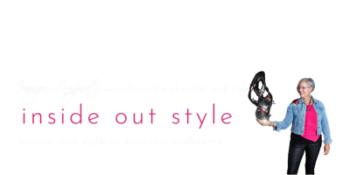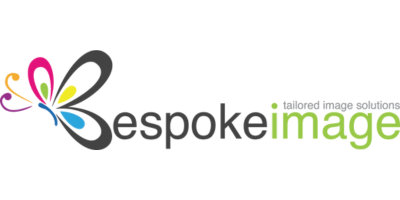Productivity is something I’ve mastered fairly well, (and people who know me always comment on how they see me as a super productive person) though there is always room for improvement . And yet I see so many struggle so much with this and so I wanted to share some reasons why you may not being as productive as you wish you were to help you on your path. Over the years I’ve learned a lot about being more productive and how to procrastinate less.
Procrastination
Procrastination, it’s something we all do You are not alone. But it wastes a whole lot of time and energy when you could be doing something to build your image business right?
When you are procrastinating, most of the time you are avoiding something. Why the need to avoid?
It all comes down to one word FEAR!
- Fear of being imperfect
- Fear of being not good enough
- Fear of letting someone down
- Fear of doing something new
- Fear of not knowing enough
- Fear of failing
- Fear of being seen as inexperienced
- Fear of succeeding
- Fear of being a poor example
- Fear of leading people in the wrong direction
- Fear of being responsible for others
- Fear of making a mistake
- Fear of being seen as incompetent
- Fear of having too many clients and not being able to give the quality of service you want to give
- Fear of having to work every day of the week because you’ve become successful
- Fear of looking foolish
- Fear of being trolled
- Fear of criticism
- Fear of being judged
- Fear of making the wrong decision
- Fear of …. (fill in the black with your fears)
Fear brings up emotions and they can make you feel stuck and so you may use them as an excuse to procrastinate. Emotions can make you feel overwhelmed and when you get into that emotional state you become really unproductive.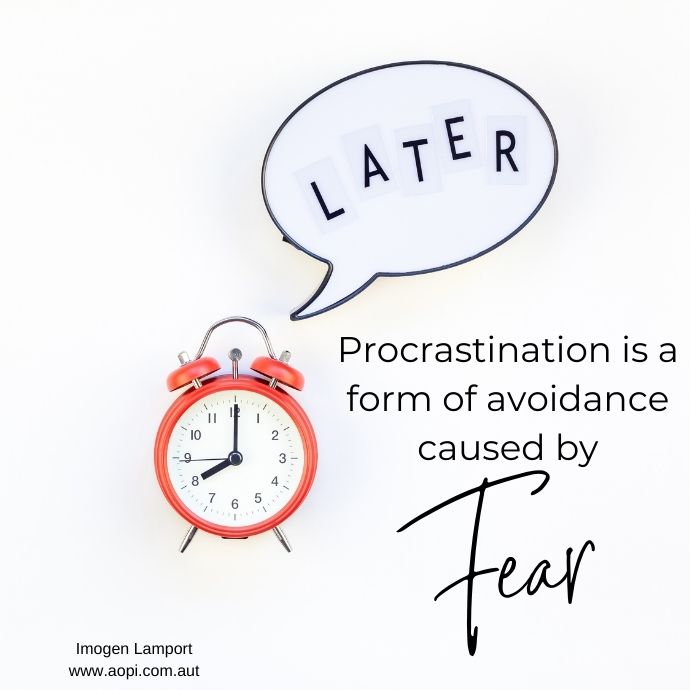
Think you don’t have a fear of success? Read this quote about the fear of success and quietly notice your emotions and reactions. How does this message make you feel?
“Our deepest fear is not that we are inadequate. Our deepest fear is that we are powerful beyond measure. It is our light, not our darkness that most frightens us. We ask ourselves, ‘Who am I to be brilliant, gorgeous, talented, fabulous?’ Actually, who are you not to be? You are a child of God. Your playing small does not serve the world. There is nothing enlightened about shrinking so that other people won’t feel insecure around you. We are all meant to shine, as children do. We were born to make manifest the glory of God that is within us. It’s not just in some of us; it’s in everyone. And as we let our own light shine, we unconsciously give other people permission to do the same. As we are liberated from our own fear, our presence automatically liberates others.” Marianne Williamson
It’s worth taking some time to journal about your fears, both the fear of failure and the fear of success! Shining the light on your fears is the first step in overcoming them.
Perfectionism is the Enemy of Productivity
Let’s talk a minute about this little issue. Perfectionism is just a word you can use to wrap up your fear in a pretty package and make it look good, rather than dealing with the fear and pushing yourself out of your comfort zone. We often think of perfectionism as a positive trait, but in fact, it’s a negative one. High standards are great, but perfectionism will stop you from achieving anything.
What are your real fears? Remember that fear is just your brain’s way of keeping you safe. These days when you’re not being chased by a tiger or a woolly mammoth, that fear which stems from the most ancient part of your brain, is actually not helping you as it’s keeping you stuck (remember the innate reaction we have to fear is fight, flight, freeze and appease and FREEZE is what you’re doing when you’re feeling stuck and overwhelmed).
When you are not getting something “out there”, not hitting publish there is a reason and it’s not because it’s not perfect (as nothing is ever perfect). Identify your fears and then ask yourself what is the worst thing that will happen? Where is that fear coming from? Some sort of messaging you got as a child? Is it still a relevant fear or is it just something that ‘feels scary’ because it’s new (and new can feel scary). Why are you avoiding what you are avoiding? What do you fear the consequences to be?
Perfection is the enemy of action
Action is what moves your business forward.
Imperfect action is the only action you should take.
Set yourself a time deadline to create the social media post, the email, the infographic, the new free lead magnet, the video (whatever it is you are creating) and then work to that deadline as if it was a school project that had to be handed in on time. Then when the time comes, hit publish. Yes, it’s NEVER going to be perfect as perfection DOESN’T exist. We are all imperfect beings and everything we do is also imperfect and that;’s totally OK. So by taking imperfect action you will have completed something and you can move onto the next activity on your To-Do list.
Remember that things take double the time you want them to take, so make your deadline one that is reasonable and achievable rather than making it impossible for yourself. But remember that we can fill all the time we have and if you tend to be a perfectionist, limiting the time you have is good as you are forcing yourself to be imperfect.
What happens when you keep taking imperfect action is that you get used to it. The fear subsides and your comfort zone grows. It becomes easier and easier.
Not sure where to start? Grab a copy of my Productivity Hacks mini training course and guide to get started!
What Else May Be Holding You Back from Being More Productive?
Shiny Objects Syndrome
Something new that comes along and distracts you from your current activity or goal is often called Shiny Object Syndrome.
This happens because you are not clear enough about your WHY (why you are doing what you are doing and the impact you want to have on the world) and clear enough about the best path forward. So when a new shiny object comes along it’s easy to get distracted. And let me tell you, shiny objects come along ALL the time.
Let’s take a moment to talk about dopamine – one of the feel-good hormones and neurotransmitters your body produces. Dopamine communicates with brain cells and encourages them to act in a pleasurable, excitable, or euphoric way. It’s a FEEL GOOD chemical. So by encouraging your brain cells to take certain actions, dopamine influences your behaviour. Buying something new can give you a hit of dopamine. Coming up with a new and exciting idea can give you a hit of dopamine. Your brain wants those dopamine hits (because you feel good when you get them) and will encourage you to seek them out. Dopamine is released when your brain is expecting a reward. It creates a cycle of motivation, reward and reinforcement.
Personality influences how much you may be distracted by shiny objects as there are two sorts of people
Starters – they love to start something new – their energy is highest coming up with the idea and getting started, but then interest wanes when it gets a bit mundane and doesn’t feel so fresh and new anymore and all the work that goes into it to finish is less than inspiring for them. They get that dopamine hit when they START something new.
Finishers – they love to wrap up a project and get it finished. They have a drive to the finish line once they have started. They are more likely to have a clear plan and they want to stick to it, which is great, but sometimes if a new perspective or idea should be included, they may not want to know about it as it disrupts their plan to get something finished. They get the dopamine hit when they FINISH something.
So you can see that Starters are energised by the starting and the newness and the exciting shiny object, but it can quickly dull when they get to the less interesting parts of the project, which is why they are looking around for the next new shiny object rather than finishing what they have started. Novelty is exciting. But remember, that NEW doesn’t necessarily mean BETTER.
How to get over this? Think about building a bridge between two islands. The bridge is what you are creating, getting to the next island is your goal as this moves you forward.
You can focus your energy on building one bridge and that will get you to the next island (your destination or … let’s call it a business goal). Or you can keep on starting to build new bridges and never complete one and never get to the next island, the place you’re so keen to go to. They both take the same effort and work, but one moves you forward to your goal whilst the other one keeps you in the same place. It may seem more exciting to keep on doing something new and different and having new ideas but in the long run, it keeps you stuck. That bridge never gets built.
How to Become a Finisher When You’re Naturally a Starter
Figure out your why (see below for tips on doing this) and then write down ALL your amazing ideas. Keep a journal or a place to do this, a note on your phone or a file on your computer… whatever method works for you.
Go through the list with your WHY in mind and work out what your priorities are (these must align with your values as well) then you can figure out what action item is going to move your business forward, what will have the most impact, and of course, from all the ideas that you are MOST excited about (if an idea is there but doesn’t interest you, maybe it’s not one for your list).
When you finish a task, give yourself a reward of some sort (this will give you a nice dopamine hit that you are craving) and may help you to rewire your brain to become more of a Finisher. You are wanting to get the bigger dopamine hit – the reward when you achieve your goal – so build mini-rewards into your projects at each stage so your brain keeps motivated to keep going!
Limit Distractions
Manage and limit distractions. If you know that you are easily distracted, make sure that you turn off ALL notifications on your computer and phone so that you are not distracted by them. Set times to check these things and only check them then.
Figure out your best time of day for doing deep and concentrated work (there is an excellent book on this topic called Deep Work by Cal Newport), and then make sure you’re clear, calm, free, and able to focus on the important work at that time of day. For early birds it’s most likely the morning, for night owls, it will be later in the day. There is research that shows that even glancing at your phone when a notification dings on it wastes around 20 minutes of time as it can take your brain that long to get back into the flow.
Then choose one and start – this is the bridge you’re building to the next island. Every time a new idea strikes (that new shiny object) put it on your list of possible ideas – it’s great you’ve captured it for later, but it’s not for now. Then relook at your why, and refocus on building that bridge to the next island. Keep taking imperfect action until that bridge is built. Then look at your list of new possibilities, the shiny objects, and figure out which is the next one you want to focus on.
Differentiate between shiny objects and real opportunities. This is where knowing your WHY is so important as you can easily run the “opportunity” past your why filter and see whether it’s a shiny object or an amazing opportunity that will move you to your goal (such as a prefabricated bridge part that will speed up the way you can build your bridge to get you to the next island faster) … it’s in line with what you are already working on, the direction you’re going rather than starting to build a whole new bridge in a different direction.
What’s Your Why?
No matter the reason for procrastination and not being as productive as you’d like if you are not clear on you WHY – the reason you started your business and why you want it to succeed, all the tips and productivity planners and help in the world won’t make it happen for you. Your why is what will keep you going when obstacles appear in your path (and they will). Your why is your motivator beyond yourself – it’s bigger than you. There is a story I heard once (true or not I’m not sure, but it makes a great point), Oprah Winfrey was asked “Why do you work? and she replied “Work or workout? I workout because I don’t want a fat butt. I work because I want to change the world and make it a better place.” You can see what a difference these two why motivations have. Her bigger why of wanting to change the world and make it a better place is the why that has made Oprah so successful.
What Drives You?
Another way to think about your why is as your driving statement. What drives you to help people? What drives you to make a difference? What impact do you want to have on your client’s lives? Why have you chosen this path? What excites you? What motivates you? What results do you want to help your client’s achieve?
Write or type out your why and stick it somewhere you can see each day. Being reminded by your why will help you get motivated when you feel like having a day off or are avoiding doing a task that you know is important that you’re not excited about (sadly, there are always tasks in business that you won’t love to do – the faster you can start outsourcing these to other people who love to do what you don’t the better).
It’s as Important to Rest as it Is to Work
Put boundaries around your work time and make sure you build in rest time. Have you noticed how the best ideas come when you’re going for a walk in nature, or in the shower, or when you’ve been on holiday? This is because your mind is free at those times of other distractions. Creativity needs space and time to reveal itself.
Create your clear boundaries about work hours and relaxation hours. Just because you can work til midnight each night doesn’t mean you should. In fact, you’ll become more efficient and effective if you have time to just be, as you do the work within the time you have rather than knowing that there is not stop time.
Remember too that self-imposed deadlines help you work more efficiently and stop you from taking forever, tweaking and tweaking trying to find perfection – which again, doesn’t exist anyway. Work no more than 8 hours a day and have 2 days a week of pure rest away from your business. It can be hard to do this if you have clients who always want you to see them on weekends. Make sure you have some boundaries around your time.
Make sure you make time to take holidays as well! It can be tempting to never have a break because as self-employed people if we aren’t working we aren’t getting paid! But rest is super important, both a good 8-9 hours of sleep each and every night as well as weekends and holidays.
Productivity Hacks Training
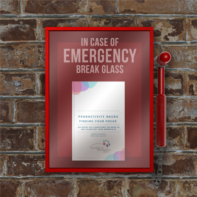 This short course gives you actionable tools to help you overcome procrastination and become more productive. With a series of short videos and guide to help you move the needle building your image business. Find out more here.
This short course gives you actionable tools to help you overcome procrastination and become more productive. With a series of short videos and guide to help you move the needle building your image business. Find out more here.






